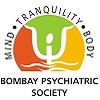drvikasdeshmukh@rediffmail.com

Drug “addiction” is now termed “dependence” or “abuse” depending on the usage of the illicit drug. Various illicit substances maybe used/abused. Each of them have a different intoxication and withdrawal profile and as such require treatment specific to that substance. Just like any other illness, Substance dependence/ use/ abuse is also considered a biological illness and is such treated the same way.
“Addictions” can also be behavioural, like, internet addiction, gaming addiction, smartphone use addiction, etc
Why & When professional help is necessary
When the person develops a manipulative pattern of using the substance, in the form of “Abuse” or “Dependence” as explained above, treatment becomes of paramount importance. Sometimes intoxication and withdrawal syndrome can become very severe requiring not only psychiatric but also medical treatment for the complications that may accompany them. Some patients try to quit unsuccessfully in the past and may then seek medical treatment to assist in the de-addiction process. Some patients may develop severe medical complications, e.g: seizure disorder, liver failure, etc. secondary to the substance use and may then seek help for de-addiction for managing their withdrawal syndrome.
Treatment process at Manovikas Clinic for De-Addiction:
For persons with less severe dependence, brief interventions that are OPD based maybe efficient. Intensive treatments maybe needed for severe dependence syndromes.
Usually the treatment begins with management of withdrawal syndrome. This entails, giving medical treatment to mitigate withdrawal symptoms and complications. This treatment includes not only supportive treatment but also therapies specific to that particular substance.
The next phase is called De-addiction and involves continuation of abstinence from the substance and therapy that supports the same. Medical treatment is continued and psychotherapy started as per patient preference and clinical and demographic profile of the patient.
Co-morbidities that have risen out of the chronic use of the substance also need to be taken care of and medical treatment as such is started and continued alongside psychiatric treatment.
Signs of Drug Abuse/ Dependence
As mentioned above, each substance has a unique clinical picture as far as intoxication and withdrawal is considered. But there are some common behavioural patterns that may be displayed by anyone who suffers from a substance dependence. The following are a few of them:
Abuse: It is a pattern of substance use where the following occurs over a 12 month period:
- Recurrent usage that results in failure to fulfil major roles, socially as well as occupationally
- Recurrent usage in situations that may result in physical hazards, like, drunk driving or operating machinery under influence of substance resulting in accidents
- Legal problems related to substance use, involvement in anti-social activities, arrests for misconduct under influence
- Continuing use despite social/ relational/ inter-personal problems arising out of use, like, arguments with spouse, brawls with neighbours/ colleagues
Dependence: It is a pattern of substance use results in significant distress and impairment and where the following occurs over a 12 month period:
- Tolerance: this can be identified when the patient needs increasing amounts of substance over a period of time for the desired effect
- Withdrawal: a characteristic syndrome (cluster of symptoms and signs) that arises when the substance use is stopped
- The use is continued over a period, longer than expected
- The substance is taken in amounts that is larger than expected
- There is a constant desire to control the use/ cut down/ quit the substance use
- Multiple unsuccessful attempts are made at quitting/ cutting down substance use
- Procuring the substance, using it, recovering from its effects take up most of the time of the patient
- Little time is devoted to any activity that is unrelated to substance use
- Important social, recreational, occupational activities get sidelined, major roles/ obligations remain unfulfilled
- Despite knowing the adverse physical/psychological/ social/ economical effects of use, patient continues to use the substance
The above symptom profile or signs apply to behavioural addictions also.
Contact US
125, First floor, Arenja Arcade, Above Domino’s Pizza, Beside Kshirsagar Hotel, Sector 17, Vashi, Navi Mumbai Maharashtra – 400703.
call 9987 1281 48
Request AppointmentCopyright © All Rights Reserved, By Manovikas Clinic

